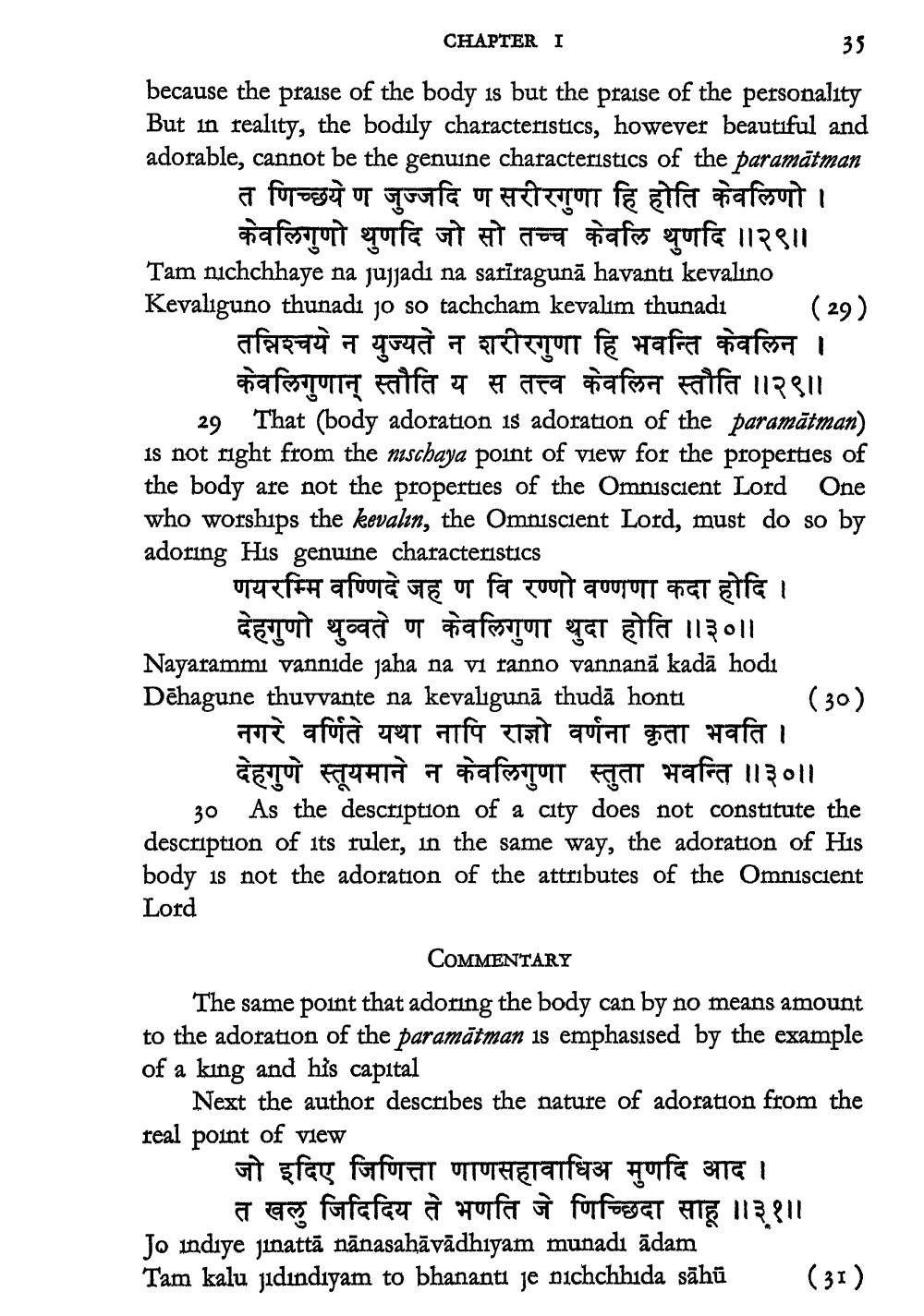________________
CHAPTER I
because the praise of the body is but the praise of the personality But in reality, the bodily characteristics, however beautiful and adorable, cannot be the genuine characteristics of the paramātman
त णिच्छये ण जुज्जदि ण सरीरगुणा हि होति केवलिणो।
केवलिगुणो थुणदि जो सो तच्च केलि थुणदि ॥२९॥ Tam nichchhaye na jujjadi na sarīragunā havantı kevalino Kevaliguno thunadi jo so tachcham kevalim thunadi (29)
तन्निश्चये न युज्यते न शरीरगुणा हि भवन्ति केवलिन ।
केवलिगुणान् स्तौति य स तत्त्व केवलिन स्तौति ॥२९॥ ___ 29 That (body adoration is adoration of the paramātman) is not right from the nischaya point of view for the properties of the body are not the properties of the Omniscient Lord One who worships the kevalın, the Omniscient Lord, must do so by adoring His genuine characteristics
णयरम्मि वण्णिदे जह ण वि रण्णो वण्णणा कदा होदि ।
देहगणो थुव्वते ण केवलिगुणा थुदा होति ॥३०॥ Nayarammi vannide jaha na vi ranno vannanā kadā hodi Dēhagune thuvvante na kevaligunā thudā honti (30)
नगरे वर्णिते यथा नापि राज्ञो वर्णना कृता भवति ।
देहगुणे स्तूयमाने न केवलिगुणा स्तुता भवन्ति ॥३०॥ 30 As the description of a city does not constitute the description of its ruler, in the same way, the adoration of His body is not the adoration of the attributes of the Omniscient Lord
COMMENTARY The same point that adoring the body can by no means amount to the adoration of the paramātman is emphasised by the example of a king and his capital
Next the author describes the nature of adoration from the real point of view
जो इदिए जिणित्ता णाणसहावाधिअ मुणदि आद ।
त खल जिदिदिय ते भणति जे णिच्छिदा साहू ॥३१॥ Jo indiye jinattā nānasahāvādhiyam munadi ādam Tam kalu jidındıyam to bhananti je nichchhıda sāhū (31)




